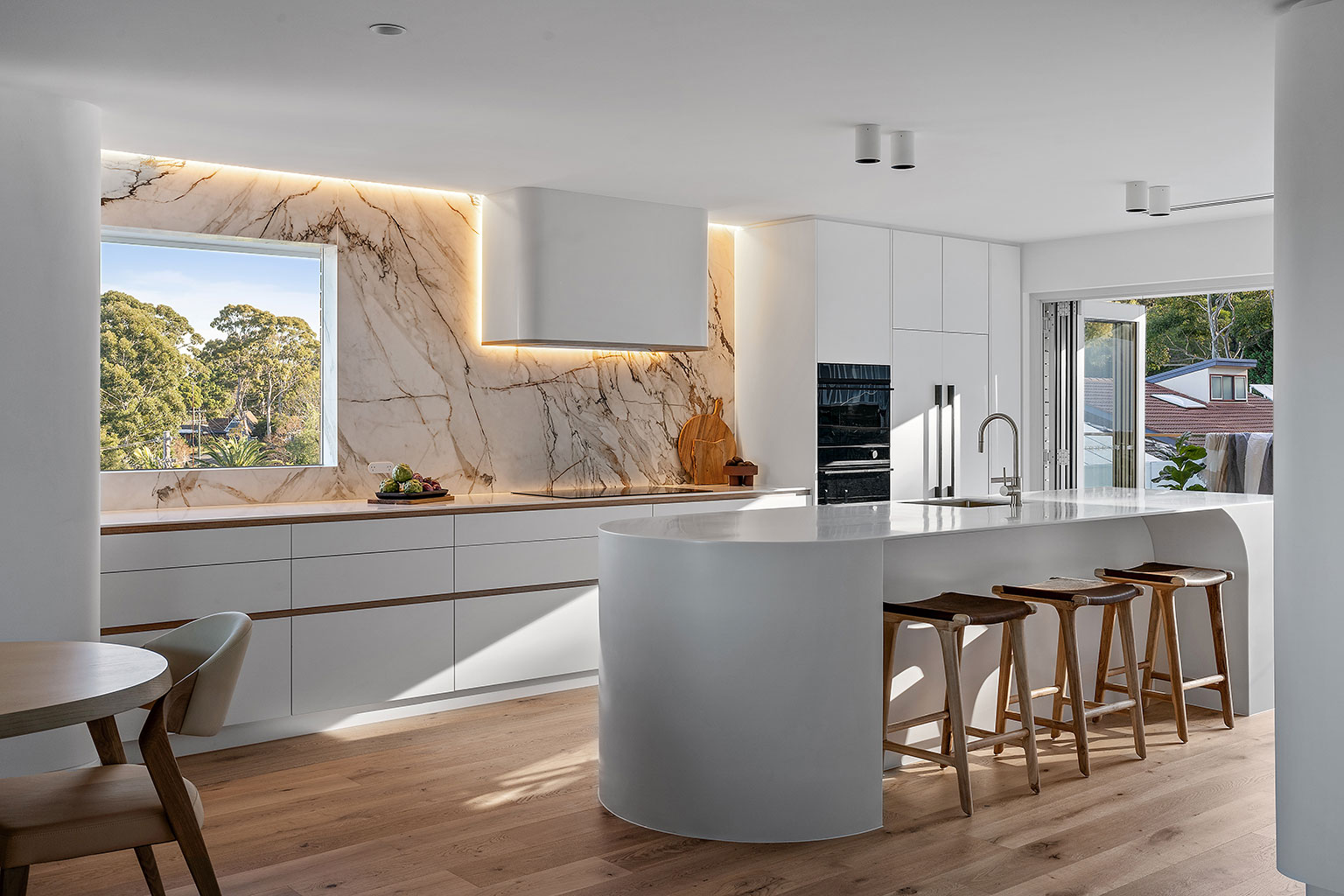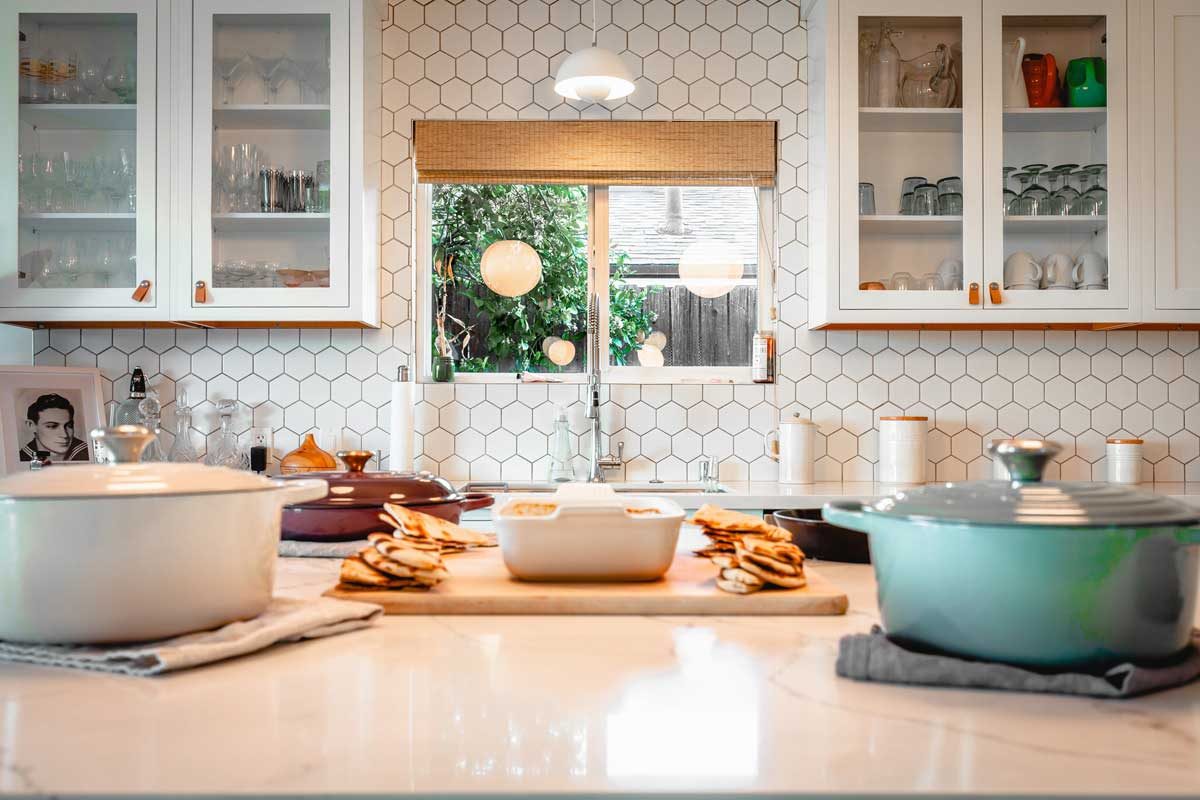Necessary Tips for Preserving Your Kitchen Area Benchtops for Resilient Beauty
Keeping the elegance and durability of your cooking area benchtops needs a thoughtful strategy to care and cleansing. With different materials and coatings available, the ideal techniques might vary-- checking out these nuances can expose unexpected understandings for your kitchen area care regimen.
Normal Cleaning Practices
Keeping an immaculate kitchen area benchtop begins with carrying out normal cleaning practices. This straightforward method not just keeps the benchtop looking fresh yet likewise reduces the risk of contamination.
Along with everyday maintenance, a weekly deep clean is advisable. During this procedure, take into consideration using a more comprehensive option, such as a gentle multi-surface cleaner, to tackle any persistent discolorations or residues. For materials like granite or quartz, it is important to follow producer recommendations for cleaning products to protect their honesty.
Pay special attention to high-traffic areas where spills are more likely to happen, and do not fail to remember to clean up the edges and edges where dust can accumulate. Regular cleaning not just boosts the long life of your kitchen area benchtop but also makes certain a secure and welcoming cooking atmosphere. By developing these habits, house owners can maintain the elegance and functionality of their kitchen surface areas with time.
Preventing Severe Chemicals
When it involves cleaning up kitchen benchtops, selecting the best cleansing items is critical (Kitchen Benchtops). The long life and aesthetic appeal of your benchtops can be considerably jeopardized by the use harsh chemicals. Several traditional cleansing agents have rough compounds that can scratch and dull surfaces, bring about unattractive marks and a reduction in their overall lifespan
Additionally, extreme chemicals can respond negatively with certain materials, such as natural stones or crafted surface areas, possibly causing discoloration or deterioration. Acidic cleansers can deteriorate the surface of granite or marble, while bleach can harm synthetic surfaces. It is important to choose for pH-balanced, mild cleansing solutions that efficiently eliminate dust and discolorations without risking harm to your benchtops.
Furthermore, lots of environmentally friendly products are readily available on the market, which not only use secure cleansing alternatives but also contribute to a healthier kitchen area environment. If you choose a DIY technique, a blend of cozy water and light soap can be very reliable (Kitchen Benchtops). By preventing rough chemicals, you can maintain the charm and integrity of your kitchen benchtops for many years to find
Utilizing Cutting Boards
Using reducing boards is essential for protecting your kitchen benchtops from the ground up and damages while preparing food. These boards act as a barrier in between your blades and the surface of your benchtops, considerably decreasing the risk of unwanted marks and wear. It is suggested to make use of a cutting board made from products such as timber, bamboo, or plastic, as each offers distinct benefits.
Wood cutting boards are known for their sturdiness and knife-friendly residential properties; they can assist keep your knives sharp. Bamboo boards are an eco-friendly choice that is lightweight and resistant to knife marks. Plastic cutting boards, on the various other hand, are simple to clean and commonly dishwashing machine safe, making them a practical option for day-to-day usage.

Sealing and Shielding Surface Areas
Shielding your cooking area benchtops expands past the use of cutting boards; sealing the surface areas plays a crucial duty in safeguarding versus discolorations, wetness, and use. The ideal sealant can boost the longevity of materials, such as granite, quartz, and timber, guaranteeing they preserve their aesthetic appeal in time.

Application of the sealer ought to be executed in a clean, dry atmosphere, adhering to the producer's guidelines Visit Website for optimal results. Usually, this involves cleansing the surface extensively, using the sealant uniformly, and permitting it to cure as suggested. Normal maintenance, including resealing every 1-3 years depending on usage and product, will reinforce protection and prolong the life of your benchtops, ensuring they continue to be a stunning centerpiece in your kitchen area.
Addressing Stains Promptly
Stains on kitchen area benchtops can swiftly become a significant issue otherwise dealt with without delay. The longer a tarnish remains, the harder it becomes to get rid of, possibly resulting in permanent discoloration and damage to the surface. Consequently, it is important to deal with spills and stains as quickly as they happen.
Various products need particular techniques to discolor removal. As an example, non-porous surfaces like quartz can typically be cleaned up with light soap and water, while permeable materials, such as natural stone, may need specific cleaners to avoid fluid penetration. Constantly refer to the manufacturer's standards for the best cleaning techniques.

Routine upkeep, including securing permeable surfaces, can considerably minimize the threat of discoloration. By promptly dealing with spills and comprehending the certain demands of your benchtop product, you can preserve the aesthetic appeal and capability of your kitchen surface areas for several years to come.
Final Thought
In verdict, keeping the elegance and capability of kitchen benchtops needs adherence to vital cleansing methods, avoidance of extreme chemicals, and the use of protective measures such as cutting boards. Routine securing of permeable products and punctual interest to spills and spots are crucial for preserving the stability of surface areas. By carrying out these strategies, the longevity and aesthetic allure of kitchen benchtops can be substantially boosted, ensuring index an immaculate and durable culinary setting.